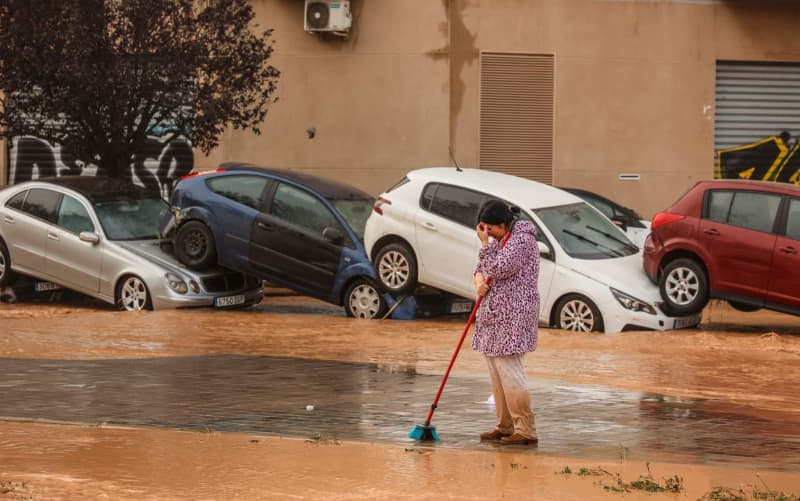Severe storms have wreaked havoc across Spain, resulting in the tragic deaths of at least 62 people, as reported by the Spanish state broadcaster RTVE. In addition to the confirmed fatalities, dozens of individuals are reported missing, fueling concerns over the extent of the disaster. Among the casualties is an 88-year-old woman from the city of Cuenca, located in the central Castilla-La-Mancha region. The scale of the devastation has prompted an urgent response from emergency services, who are working tirelessly in challenging conditions to assist those affected by the storms.
Rescue efforts have encountered significant obstacles due to flooded or blocked roads, complicating access to some of the worst-hit areas. In the Mediterranean region of Valencia, which has been particularly hard-hit, the relief operations have largely depended on aerial support from helicopters, as noted by José Miguel Basset of the Valencia fire brigade in communications with the news agency Europa Press. The reliance on air support illustrates the severity of the flooding and the urgency required for rescue operations in the region.
The adverse weather conditions have caught the attention of meteorological services, with AEMET issuing a severe weather warning that remains in effect for several parts of the country. The relentless rain has created an imminent threat to the safety of residents and exacerbated the difficulties faced by emergency responders. Meteorologists have indicated that the rain front is expected to shift northeastward, but conditions across Spain will not stabilize until at least Thursday, prolonging the danger and complicating recovery efforts.
The impending movement of the rain front raises concerns over the potential for further flooding and landslides as the situation develops. Many residents in the affected areas are understandably anxious about the continuing threat, which could hinder their immediate safety and well-being. With so many individuals still unaccounted for, search and rescue operations are continuing, highlighting the dire need for swift action in the face of escalating natural disasters.
Communication and coordination among local authorities and rescue teams have become crucial in mobilizing resources effectively. Once conditions permit, a more extensive examination of the damage and a detailed assessment of the missing individuals will be paramount. The emotional toll on families waiting for news of their loved ones amidst such uncertainty only adds to the urgency of the situation.
As Spain grapples with this catastrophic weather event, the nation’s resilience and ability to respond to crises will be put to the test. The cooperation of various agencies and the dedication of first responders remain essential in addressing both immediate needs and long-term recovery efforts. In the wake of the storms, the focus will undoubtedly shift to rebuilding and supporting affected communities, ensuring that the lessons learned can help mitigate the impacts of future natural disasters.

